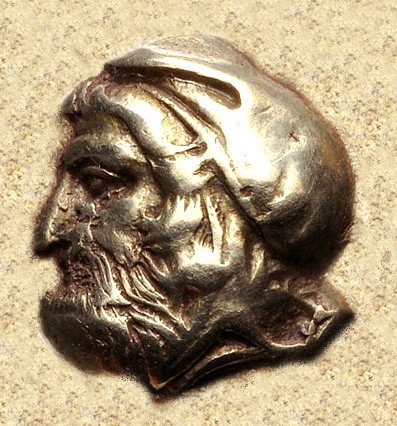crisis
10 Lessons That Inspired Alexander The Great, Part 1
February 2024

crisis
10 Lessons That Inspired Alexander The Great, Part 1
February 2024
Alexander The Great set into motion the events that would create the modern world. He studied and was inspired by Xenophon, a student-of-Socrates turned mercenary. Xenophon’s lessons on crisis leadership are timeless. In this series, we recount his epic, true story of war in the Anabasis and update this ancient wisdom to support you and your business the next time crisis hits.
--
Have you ever wondered how civil wars start?
Intuitively we know that division and aggression must run deep for a single entity to tear into two and wage war against each other.
What seeds must be planted to drive such division?
Countries engage in civil war. But so do families. So do corporations.
Whether one brother against another, or sales at war with marketing… civil wars have a common beginning.
--
Xenophon’s story begins in 401 BC.
Xenophon joins a Greek mercenary group called The Ten Thousand. They are hired by the Persian Cyrus the Younger. Cyrus is the younger brother of the rightful king, Artaxerxes II.
And it is Cyrus’ mission in life to overthrow his brother and seize the Persian Empire. Cyrus lies to The Ten Thousand when he hires them and plans to use them to kill his brother.

In his account, Xenophon give us two clues as to the start of this feud:
When a leader, in this case a mother, plays favoritism it creates unconscious power dynamics within a system. Favoritism instantly creates a schism. As long as the children / followers remain loyal to their leader, they will remain loyal to this imbalanced dynamic. In this case, we see Cyrus playing out his mother’s fantasy of replacing her firstborn.
The same goes for modern day organizational leadership. Leaders frequently show intentional and unintentional favoritism and introduce games between their group members. From corporate to academia, creating competition within a group is the first step to civil war.
Tissaphernes picks up on this divide and pits the brothers against each other. He plants ideas of rebellion and coup in the mind of Artaxerxes. Artaxerxes full of fear moves Cyrus out of the capital and places him in a political “no-man’s-land”. Tissaphernes increases his power and decreases the power of Cyrus.
The mother created a division between the two brothers and a politician lied to ramp up emotions. The two brothers, unable to resolve their conflicts, found themselves at odds and in a chain event of retribution.
It is at this point that Cyrus hatches his illegitimate plot against his brother and hires The Ten Thousand.
--
Social systems have laws that govern them. When the laws are respected, the system operates in order and harmony.
When the laws are broken, we often end up in chaos and instability.
Playing favorites may seem innocent but over time it leads to massive conflicts. Understanding our feelings – positive and negative – for our subordinates is imperative. Removing personal bias and “likeability” in a workplace is necessary for smooth operations.
The alternative? Civil war.

